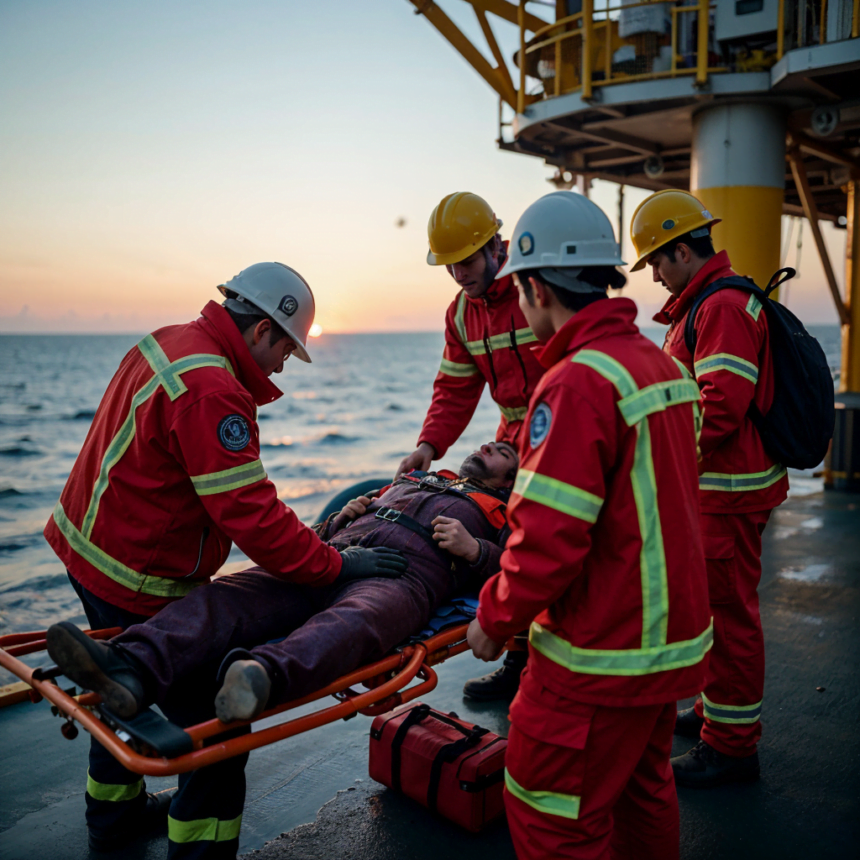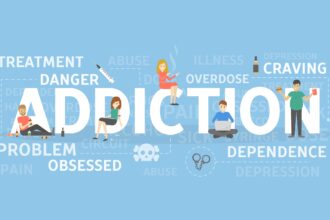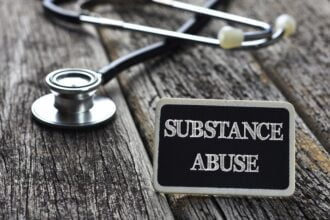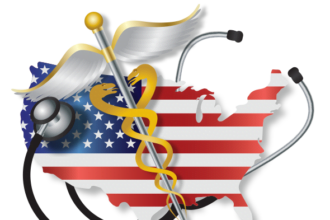Knowing what healthcare steps to take after an oil rig accident is critical for giving yourself the best chance at making a full recovery. Here is a breakdown of the important steps everyone should follow.
Seek Immediate Medical Care
After sustaining serious injuries on an oil rig, you need to be transported from the rig to the nearest hospital or urgent care able to provide appropriate emergency services as soon as possible.
Some common oil rig injuries like burns, chemical exposures, head trauma, broken bones, and back injuries can look deceptively mild initially but have hidden internal effects that quickly spiral if not treated. Getting evaluated and beginning care quickly not only gives you the best prognosis, but also thoroughly documents the incident on your medical record if future worker’s compensation claims need to be filed.
So if you experience any slip, fall, crush injury, burn, vehicle accident, exposure to chemicals/gases, or other accident while on a rig, alert your supervisor and request immediate emergency transport without delay even if you feel you can “tough it out.” Timeliness is key for preventing further harm.
Follow All Medical Recommendations
This means doing the following:
- Taking all medications properly – completing the full course and dosage without stopping early even if the pain seems to resolve.
- Arriving on time to scheduled follow-up appointments and therapy sessions. Recovery is still occurring even if visible symptoms disappear. Skipping rehab appointments slows healing.
- Making the full commitment to physical therapy exercises, stretching, and activity modifications in your daily routine as outlined. Half doing the home regimen won’t cut it.
- Using assistive devices like knee scooters, crutches, slings, or casts as directed without trying to go “rogue.” These items protect healing tissues that are still vulnerable.
- Following exact instructions related to bearing weight, resuming certain movements, driving vehicles, returning to work duties, etc. Doctors’ orders are precise based on your unique injury. So if they say do not lift anything over 15 pounds for 6 weeks, take that seriously rather than trying to wing it.
Essentially, doctors and physical therapists act as coaches throughout your recovery – you need to be a compliant player focused on the long-term goal of complete healing rather than looking for shortcuts around medical advice.
Be detailed and honest with your rehab team regarding your symptoms so they can make proper assessments and adjustments. Even small changes in pain levels, swelling, numbness, tingling, headaches, stiffness, coordination, strength levels, etc. can give important clues related to healing progress. And so if you want the best shot at a quick recovery, being as transparent as possible is important.
Bring a support person along to appointments if you are able to so that they can take notes and help you remember care instructions.
Expect Complete Healing Can Take Time
While every patient’s recovery timeline is unique depending on factors like injury type, age, and health status, it’s important to generally expect that full healing following an oil rig incident can be measured in months rather than days or weeks, especially with more severe trauma.
Knowing this avoids underestimating a realistic prognosis at the beginning. And being patient with the speed of improvement can keep you from reinjuring fragile tissues and trying to rush back into activity before you’ve truly regained strength and stability.
For example, a back sprain may take 2 to 3 months before the pain fully resolves whereas a complex elbow fracture could take 6 months before reaching optimal functionality. After a head injury, symptoms like headaches, dizziness, and mental fog may persist for a year before all resolve. And burns lead to possible skin tightness and sensitivity that continues for several years.
Rather than growing frustrated comparing yourself unfairly to generalized recovery from injury timelines, focus on setting small achievable goals week by week. Celebrate each milestone while respecting the overall long journey back to wellness. Avoid macho mindsets pressuring premature returns to rig work duties – take your rehab as seriously as you would an assigned project. Protecting your long-term health is the priority, not trying to break any speed records.
Seek Various Types of Support
In addition to medical treatment support, having various types of emotional, mental health, financial, and occupational support can greatly ease the burden during this recovery journey and help avoid feeling isolated or overwhelmed. Consider connecting regularly with resources like:
- Counselors or therapists – Process psychological effects of trauma or upheaval associated with injuries.
- Peer support groups – Connect with fellow injured workers for understanding.
- Social workers – Help navigate financial/insurance barriers to obtaining care.
- Legal help – If necessary to assist with worker’s compensation claims.
- Union reps – Understand rights/resources available via your employer.
- Financial planners – Strategize handling lost wages, and disability leave.
- Career counselors – Discuss skills, and training if work capacity changes post-injury.
Having various voices in your corner makes navigating ups and downs smoother. Don’t neglect the emotional health facets of coping through setbacks and adjustment periods after unfortunate rig incidents. Speaking to those who “get it” provides reassurance.
Also, refrain from blaming yourself for what occurred. Even seasoned veterans suffer occasional accidents. Focus forward on solutions rather than dredging up self-criticisms that don’t serve your convalescence. You’re likely already motivated enough to get back on your feet without negativity.
Commit to Ongoing Vigilance
Even after the initial recovery phase winds down and you resume greater functionality, it’s vital not to consider the book closed altogether. Many victims of common oil rig injuries find that they continue experiencing various nagging symptoms that pop up periodically in the months and years after. This may include things like:
- Intermittent pain flares or stiffness in joints/tissues following bone breaks, sprains, and muscular damage. Cold weather can exacerbate.
- Lightheadedness when transitioning positions with prior head trauma.
- Skin dryness or itchiness surrounding burn scar tissue.
- Short-term fatigue, headaches, and incoordination when attempting demanding recreational activities.
Don’t automatically view such issues as random annoyances you just have to grit your teeth to endure. Instead, bring them back to your care team to evaluate if any targeted treatment adjustments need to be made proactively with things like medications, braces, topical creams, and dietary changes. Being vigilant helps prevent minor problems from spiraling into greater setbacks. Consider adding regular check-ins with your physician every few months to assess how prior healed wounds are faring long-term.
Likewise, you may need to accept certain lasting limitations to avoid aggravations. This may mean being unable to bow hunt any longer if a shoulder injury impaired that range of motion or avoiding exposure to certain chemical cleaners that trigger breathing changes after lung damage.
Discuss modifying activities as needed rather than ignoring issues.
In Summary
Recovering fully after an oil rig injury requires diligently navigating many healthcare steps including prompt emergency care, strict adherence to medical advice, patience with reasonable timelines, asking for help when needed, and accepting that lasting effects may require adaptation.
If you are injured in an oil rig, prioritize communicating concerns promptly rather than minimizing symptoms. This helps ensure you receive optimal treatment support with the best chances of getting back to a productive life after an unfortunate mishap.
Also, commit to being a cooperative patient willing to follow recommendations rather than resisting inconvenient adjustments. With time and commitment, healing is very possible even after serious incidents. You will have a whole team of professionals prepared to guide your progress if you put in the hard work each day.










